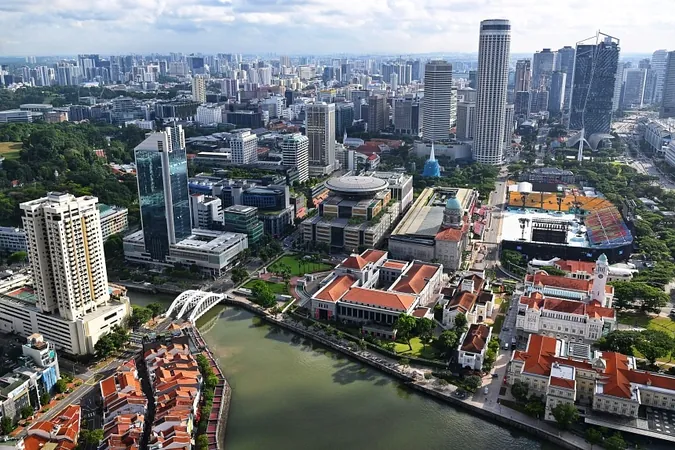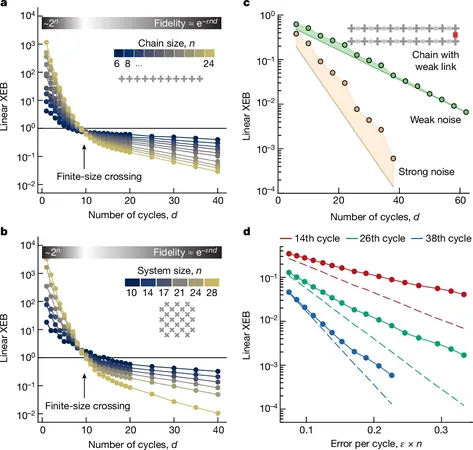
Unyielding Standards: Chan Chun Sing Highlights Integrity in Public Service Amid Legal Reforms
2024-10-14
Author: Siti
SINGAPORE - On October 14, Chan Chun Sing, the Minister-in-charge of the Public Service, emphasized the unwavering expectation of high standards of conduct from all public servants.
In a statement delivered in Parliament on behalf of Prime Minister Lawrence Wong, he stressed that accepting gifts from individuals with whom they have official dealings is strictly unacceptable. This practice, he noted, threatens to erode public confidence in the impartiality and integrity of the government, a principle that extends to all leadership roles within both private and public organizations.
Chan's remarks came in response to a wave of concern following the sentencing of former transport minister S. Iswaran to 12 months in prison after pleading guilty to multiple charges, particularly those under Section 165 of the Penal Code, which pertains to public servants obtaining valuable items improperly.
This incident reignited discussions among MPs regarding the effectiveness of Singapore's anti-corruption laws.
Inquiries were raised by prominent members of the Workers’ Party, particularly Sylvia Lim (Aljunied GRC), who questioned the relevance of the Penal Code’s definition of a public servant in modern governance and whether it might be time to reevaluate these anti-corruption statutes.
Other MPs, including Zhulkarnain Abdul Rahim (Chua Chu Kang GRC) and Yip Hon Weng (Yio Chu Kang), expressed concerns that stringent regulations could deter skilled professionals from the private sector from entering the public sphere.
In his defense, Chan assured parliamentarians that stringent rules would not intimidate capable individuals from pursuing roles in public service.
On the contrary, he maintained that a transparent and honest governmental framework is essential to attract top talent from various sectors.
Addressing the call for a review of anti-corruption laws, Chan advised against hasty changes in response to individual failings.
Instead, he advocated for straightforward action against violations of existing rules, asserting that if misconduct occurs despite clear guidelines, the focus should be on enforcing those rules rather than crafting new regulations.
He also clarified that should the current laws appear inadequate, they would be reconsidered accordingly.
The recent scandals highlight Singapore's commitment to maintaining an ethical governance structure that upholds public trust.
Chan reiterated that these developments reflect the government's dedication to combating corruption in any form and restoring integrity in public service.
In a pointed exchange, Sylvia Lim noted that while Iswaran's conviction was not directly tied to corruption, Prime Minister Wong's commentary hinted at a broader condemnation of corrupt practices.
Chan clarified that violations under Section 165 indeed fall within the realm of corruption charges, differentiating them from traditional quid pro quo scenarios by focusing solely on the act of receiving an improper benefit.
Additionally, Lim raised concerns about potential litigation risks when discussing charges under the Prevention of Corruption Act and whether these might prompt a broader evaluation of existing laws.
Chan reassured that local enforcement agencies currently find the framing of these laws effective and are prepared to reconsider them should future situations warrant such a review.
As Singapore navigates these complex issues surrounding public service conduct and integrity, the situation serves as a poignant reminder of the continual need for ethical governance in maintaining public confidence.
Could the recent scandals be a catalyst for transformative change in Singapore's anti-corruption framework? Only time will tell.


 Brasil (PT)
Brasil (PT)
 Canada (EN)
Canada (EN)
 Chile (ES)
Chile (ES)
 España (ES)
España (ES)
 France (FR)
France (FR)
 Hong Kong (EN)
Hong Kong (EN)
 Italia (IT)
Italia (IT)
 日本 (JA)
日本 (JA)
 Magyarország (HU)
Magyarország (HU)
 Norge (NO)
Norge (NO)
 Polska (PL)
Polska (PL)
 Schweiz (DE)
Schweiz (DE)
 Singapore (EN)
Singapore (EN)
 Sverige (SV)
Sverige (SV)
 Suomi (FI)
Suomi (FI)
 Türkiye (TR)
Türkiye (TR)